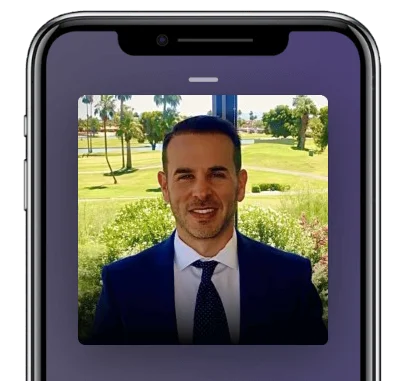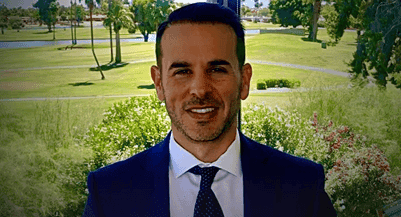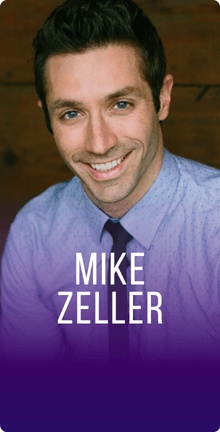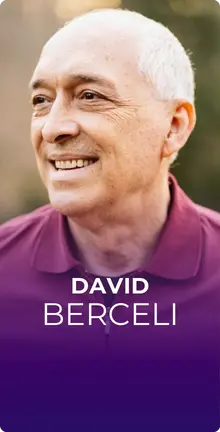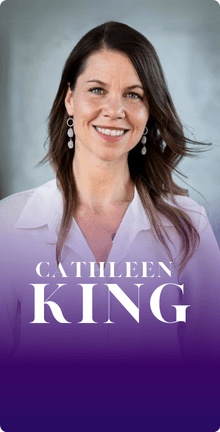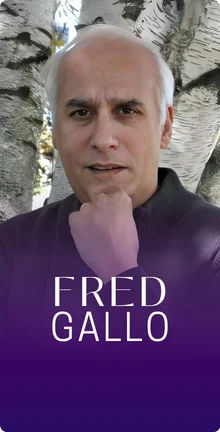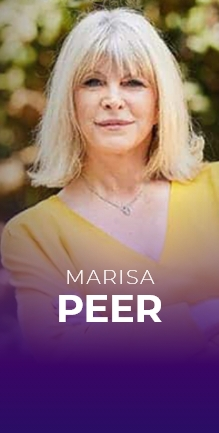In this Episode
- [00:39]Stephan introduces his next guest, Shalev Amar, a successful attorney who has studied trauma processing, releasing, and healing methods to overcome his childhood trauma for nine years.
- [01:31]Shalev narrates about the origin story and the sources of his trauma.
- [08:45]Stephan asks how the trauma affected and showed up in his adulthood.
- [12:20]Shalev talks about his healing journey and how he tried to get help before going on his path.
- [17:32]Shalev shares that there are two methods in improving how you cope and how you release trauma and further explains about Network Chiropractic Treatments.
- [22:14]Shalev recommends the second method called trauma release exercises or TRE.
- [28:41]Stephan and Shalev discuss the process called Ho’oponopono and talk about forgiveness.
- [32:24]Stephan wants to know Shalev’s thought about the concept that everything happens for a reason.
- [36:57]Shalev and Stephan discuss going beyond the wall of others to understand and be understood.
- [40:58]Stephan shares to the audience another healing modality called Emotional Freedom Technique, also known as tapping.
- [42:53]Shalev also talks about Eye Movement Desensitization and Reprocessing and the hardest a trauma-release method called Kambo.
- [45:15]Stephan enumerates other trauma releasing methods: Rapid Transformational Therapy (RTT), breathwork and BrainTap.
- [46:50]Visit Shalev Amar’s YouTube channel for free content and information to heal or to help people in their life heal.
Shalev, it’s so great to have you on the show.
Thanks, Stephan. It’s great to be here.
We know each other from a mastermind that we’re both in called Genius Network. I heard you speak on a 10-minute talk not too long ago about healing from trauma and it was so powerful, impactful, riveting, and eminently practical. I just have to have you on the show to talk about it. If you could start by sharing a bit about your origin story and how you ended up needing to deep dive into this topic.
I think trauma is largely misunderstood.
I think trauma is largely misunderstood, especially the origins and causes of trauma. There can be a variety of factors that can traumatize you. Commonly, people when they think of trauma, they think of PTSD. For example, being in a war and your best friend is blown up, being the victim of a massive assault, being raped, or a death. All of those things definitely can traumatize you. However, there are other sources of trauma as well.
Going to my story, the trauma started before I was even born. When a child is in utero, a fetus, if the mom is under stress, depressed, or even environmental toxins, all of those things can affect the unborn child because they share everything—hormones, food, and neurochemicals. If the mom is stressed and has high cortisol levels, high norepinephrine, and epinephrine levels, that’s going to affect the unborn child in utero. It actually started there, my mom had a difficult pregnancy.
Then a second source of trauma, which again, a lot of people are not aware of that happened to me is my mom had a traumatic birth. She had a very long labor, I think at least 24 hours, it could have been longer. She wasn’t given any pain meds. She didn’t know the language because my mom was South African. She had moved to Israel and married my father, which she still didn’t know the language so she couldn’t even communicate properly.
In any event, I had a very traumatic birth. I was stuck in the birth canal for hours and hours. Mom was flooded with adrenaline, cortisol, extremely stressed, and severe pain. All of those neurochemicals and hormones flooded my system. Sometimes, if a child is born in a traumatic birth like that, it causes the nervous system to be extra sensitive and overactive just from the birth. It’s kind of very early imprinting.
Then after that, I grew up in what’s called a kibbutz, which is a communal farming town in Israel. Basically, there are all different kinds of kibbutz, but the one that I grew up in was basically like a hippie commune where they would do all kinds of weird social experiments. They actually don’t do this anymore and they were trying to build community cohesion by having all the kids grow up together.
It's important to process, release, and heal trauma because if you don't, you'll keep reliving these same patterns over and over again. Share on XWhat happened was, I was taken away from my parents at a year old. It’s basically similar to a child being in an orphanage because I was in this children’s house with other babies or toddlers. What would happen is I would wake up in the middle of the night not knowing where I was, the person watching the kids would oftentimes be asleep. I would kind of be able to escape from the bedroom and I would be running around in the little town in the middle of the night trying to get home.
Apparently, it was a big problem like I would do that a lot. My earliest memory is actually running around in the middle of the night just horrified, terrified, and abandoned feeling like I was going to die. That was a very, very deep subconscious wound for me, an abandonment wound.
On top of that, my father, may he rest in peace, he passed last year. I want to preface this by saying, this is not a “bash my parent’s session.” Your parents do the best that they can with the level of awareness and development that they’re at. I don’t think any parent would intentionally want to harm their child. Be that as it may, my father had a severe case of borderline personality disorder or BPD.
He basically lacked emotional control and he would fly into rages at very minor provocation or even no provocation. Sometimes he would just remember something and blow up. He was traumatized as well, even worse than me. My grandfather was a Holocaust survivor and a raging alcoholic. That’s the way he self-medicated his trauma and he severely traumatized my father.
Again, my dad did the best he could, but he would fly into rages. Kids are stumbling, I would spill something and he would flip out and start screaming at me. It got to a point where you’re walking on eggshells and you’re basically trapped in the fight, flight, or freeze because you don’t know where the next explosion is going to come from.

Those were the sources of my trauma. Mind you, I’m not saying there was any physical abuse, I’m not saying there was any massive disaster that happened in my life. All of these were other sources of trauma. A lot of people are not aware of this. Other ways that somebody can be traumatized is by being bullied at school, by moving a lot, by being made fun of, being ridiculed, or having a parent repeatedly say negative things to the child.
What I want your listeners to know is that smaller traumas are kind of a stair step. If they happen repeatedly over and over again over the months and years, the end result can be just as bad, sometimes even worse than a major one- or two-time life traumatic event. It’s another form of PTSD. It’s called Complex PTSD. The symptoms are exactly the same. It’s just the genesis, the cause is different.
You went through this really tough time through your early formative years and that showed up in what sort of ways in your adulthood?
Where to begin? I was basically going from one disaster in my life to another. On top of that, just severe generalized anxiety mixed in with some panic attacks. When I was at my worst, I frankly don’t wish this on my worst enemy. Here’s a typical day. I would wake up, the moment I woke up, I would have trouble breathing, my chest would feel tight. I would have a painful feeling in my solar plexus, in my throat, even up in and down my arms sometimes. Just breathing was challenging. You would breathe but you feel like the air is not really getting into your body.
It’s really hard to explain to people. Some analogies and metaphors can be helpful. Let’s say that you’ve almost fallen off a cliff, you know that feeling that you get? It’s kind of like instantaneous. That fear response would be triggered in me constantly throughout the day from almost nothing. I’d even feel like there were people following me and stuff, there’s nobody behind me. Constantly, that pain feeling was just triggered over and over again, sometimes hundreds even thousands of times a day.
A lot of people who are traumatized self-medicate with drugs and alcohol. It’s just to escape the pain.
That’s why a lot of people who are traumatized self-medicate with drugs and alcohol. It’s just to escape the pain because it’s so severe and there are other addictions that can be caused by trauma as well—addiction gambling, all kinds of things, even shopping addiction. What the addictions do is distract you from the pain and give you temporary relief from the pain but they can also wreck your life and your health. It just sucked.
As far as going to sleep, I would have a really rapid heartbeat, tossing and turning, and feel like I was falling off the bed as I’m falling asleep—it just sucked—waking up in night sweats. Like I said, I don’t wish it on my worst enemy. It’s really a horrible way to live. I really have a lot of compassion and empathy for the people suffering from trauma or that have people in their lives that are suffering from trauma, because obviously, being in that state affects other people as well.
Would you wake up in the middle of the night just bolt upright as if you’ve felt like you died or almost died?
Oh, yeah, all the time. Sometimes I wake up shaking and would have horrible nightmares. It was a living hell. I can’t sugarcoat it.
For how many years did this go on?
Basically, my entire life until I started on this healing journey. There were times when it wasn’t as bad, if I had fallen in love or if I was partying a lot, but day-to-day, this was my reality.
Wow, it sounds like decades.
Oh, yeah. I’d say I started on the healing path when I was 35.
How old are you now?
Forty-four.
Okay. Let’s talk about this healing journey. Where did you first turn to and what was most impactful? What was a red herring or just not beneficial at all?
Of course, because I was suffering I tried to get help before I went on my own path. I was on antidepressants, anti-anxiety medication, and sometimes they would help for a couple of months. Oftentimes, there’d be really bad side effects especially early on. You could have suicidal thoughts, but all kinds of unpleasant side effects. Over time, the drugs just didn’t work.
There's no magic pill. There are things that can help and speed up your healing, but there's no avoiding the hard work. Share on XAlso went through therapy and that helped a little bit as far as helping gain awareness, but it didn’t resolve the internal pain. When I went on my own healing path, I just basically had a whatever-it-takes attitude. I was sick of being in pain and I was willing to do whatever it takes to heal.
Part of what spurred that action is I had another failed relationship, this one that was four years. It was a very painful breakup. The relationship started off well the first year, but for three years, it was really terrible. It takes two to tango, but I can tell you, my old partner would just do things that really triggered me. She would have emotional outbursts and was just basically nasty to me. That was very triggering of early childhood trauma. There are some things I could have done better, but regardless, I would get yelled at and I would be spoken to disrespectfully.
This is something that traumatized people should know and it’s an unfortunate pattern, but you tend to end up getting in relationships that mirror the dysfunction that you had growing up. It’s not even conscious, it’s just subconscious, that’s what feels comfortable to you. That’s why it’s so important to process, release, and heal trauma because if you don’t, you’ll keep reliving these same patterns over and over again.
You really have no choice. Your choice is to continue suffering, continue having bad experiences, or do the hard work. What a lot of people don’t understand is that if you do the work, you’ll get worse before you get better and that’s why a lot of people can’t stick with it, quit, and go back to their addictions or whatever coping mechanisms that they have.
To thrive, you have to do that hard work.
I just got to a point where I didn’t want to keep coping. I wanted to thrive in my life. To thrive, you have to do that hard work. It’s kind of like cauterizing the wound. It’s going to hurt at first, but it will eventually help it heal, rather than just putting a bandaid on the wound and some numbing cream, that doesn’t work.
That’s what I think, unfortunately, traditional psychiatric medication does is it’s just a bandaid and it numbs the pain. If somebody has a psychiatric condition, I’m not telling anybody to stop taking their meds without conferring with their doctor. Some people do have severe genetic issues or otherwise. I also think that medication can be a bridge if somebody is going through a really hard time and they need it temporarily to help them get to a better place.
Maybe science will invent something better than we have so far, but in my opinion, for most people that are traumatized, medication is not the solution. You have to do the work, you have to heal yourself, you have to go through the pain of healing. You can take all the medication in the world, it will never resolve the problem. You’ll be on medication for the rest of your life. You’ll be in therapy for 10, 20 years and you’ll still feel the same.
By not dealing with it, you actually then have that spill over into your next lifetime, I think.
Yeah, potentially. There’s no magic pill, I hate to say it. There are methods and we can get into those in a bit. There are methods that help get you to the next level, but then it still requires work, integration, and daily routines and habits. There’s no magic pill. There are things that can help and speed up your healing, but there’s no avoiding the hard work.

Yeah. Let’s get into some of these methods because they can be instrumental in improving how you cope and how you release.
Definitely. There are two types of methods. There are basically daily routines and habits and then there is the more challenging extreme kind of ones, I would say, once in a month or even once every few months type methods. I’ll talk about both. Something that’s really helped me is what’s called Network Chiropractic Treatments. The name is a little bit deceptive because they might adjust you if something’s really misaligned, but it’s mainly pressure point therapy like acupressure. What that is, not to get all woo-woo, part of it is energy balancing.
Look, I’m an attorney. I’m the most logical person that you’d meet, but I’ve also learned over time in trying things that you’ve got to have a spiritual component as well. There are things that science cannot explain or quantify but that can be very healing and very helpful.
By the way, I had the founder, the creator of NetworkSpinal Analysis on this podcast.
Oh, that’s amazing.
He’s a personal friend of mine, Donny Epstein.
He’s doing God’s work. He’s really helping people. Here’s how I would describe Network Chiropractic. After the balancing session is done, it feels like you’ve both had an hour massage and an hour meditation session combined. What it does over time is it starts to balance your bioenergetic field, but on top of that, balance your nervous system. It makes you less emotionally reactive and it also slowly, over time, heals and releases trauma.
It gives you relief without doing something that’s destructive to your health, to your life, or to your relationships.
When I started Network Chiropractic, I would go three times a week because I was such a mess. It was one of the few things that gave me relief. I still go once a week years later, but yeah, Network Chiropractic is a game-changer. One of the awesome things about it is it gives you relief without doing something that’s destructive to your health, to your life, or to your relationships. Quite the opposite, it improves all those things. I highly, highly recommend Network Chiropractic treatments. There should be practitioners, at least in the US, in almost every major city.
We have an under care with Network Chiropractic. Because we’ve moved now to Florida, we’re not in care yet. We’re looking to find our next practitioner, but when we were in Tel Aviv for nine months, we had this most incredible practitioner who was recommended by Donny Epstein’s wife, Jackie, to us. That was an instrumental component to my spiritual awakening in January, having those weekly entrainments. It’s energy healing, it’s energy work. It’s not just pressure points. For somebody who’s never experienced it, it’s really hard to convey the massive value of it. It powers your energetic houses in ways that you may have never experienced.
Oh, yeah, definitely. I remember thinking during these sessions, you can’t really feel this way. I didn’t think it was even possible to feel that way without some kind of medication or substance. Again, it gives you that effect without all the negative stuff. The great thing about Network Chiropractic, and that’s awesome that it helped you as well, is it builds over time. The longer you stick with it, the better it works. Highly recommend that. The second method I recommend is trauma release exercises or TRE.
I’ve had David Berceli, the founder of TRE, on this podcast too.
That’s awesome. Yeah, I’ve met David. He’s a great guy. He actually did a couple of personal sessions with me because I have some injuries from car accidents. I couldn’t do all of the various exercises. He showed me what I could do without throwing my body out of whack. Long story short on TRE, it’s exercises that fatigue your psoas muscles. By doing that, it causes involuntary shaking in your body. That shaking actually causes a release of trauma energy.
Going back to the car accident example, oftentimes, you’ll see people on the side of the road in a blanket shaking, that’s actually a good thing. That’s the body’s natural way of releasing trauma energy. These exercises induce that shaking and allow the release of trauma from your body and nervous system.
Another common misconception about trauma. People think it’s all in your brain. It’s not.
This is actually another common misconception about trauma. People think it’s all in your brain. It’s not. Some are in your brain, but it’s also in your body and actually your entire energetic field. That’s why these body healing modalities are very effective and very helpful. When your body feels better, it’s easier to have a better mindset. I think that one of the major problems with traditional psychotherapy is that you can analyze the problem from every angle.
If the person still has a dysregulated overactive nervous system, they’ll never get to where they want to be. They’re still suffering internally, even if they fully understand why. I mean, that’s great to know why, but it’s very difficult to implement solutions when you just feel off physically and emotionally. That’s why these healing methods are supercritical.
Something else that I recommend, with the caveat that, look, this is illegal still in many places in the world. Also, there are people with certain conditions like schizophrenia where it’s not a good idea to try these things, but what I’m alluding to is psychedelics.
The good thing about psychedelics is that they are starting to be decriminalized and legalized in certain parts of the world. I believe in Oregon, they’re decriminalized. Also, over the last couple of years, there have been some major studies. If it’s a government-authorized and funded study, you just need to apply, and if you qualify, it’s legal for you to use these substances. At the same time, you also have the benefit of a therapist guiding you through the journey.
Psychedelics are not for everyone.
Again, psychedelics are not for everyone. They can also be very, very difficult, the so-called bad trip, which is a nightmare while you’re still awake and it feels very real. With those caveats, psychedelics can be very helpful both for releasing trauma and for giving you really, really deep insights and awareness. I was on an Ayahuasca journey, which helped me forgive my father.
It’s hard to explain, it’s just the spirit world basically just showed me how he was so hurt himself, how he didn’t mean to hurt me, how I needed to let go of this weight of resentment and forgive. Ironically, it also asked me to forgive my ex and I just wasn’t ready. I was like no, I’m not there yet, but they tried to get me to forgive.
Has that happened yet?
Yeah, for the most part. Again, you got to look at hurt people hurt people, at the end of the day. She had some things happen to her and her childhood. I feel sorry for her actually because she’s had some negative repercussions in her life from her behavior. She was raised by her grandparents until age 11. Her mom wasn’t ready to have a child, her parents split up when she was, I think, under a year old, and her dad left. She was left with her grandparents. What do grandparents do with grandkids, typically?
What? I don’t know.
We can't heal these intergenerational cycles of trauma if we're never willing to talk about them. Share on XThey spoil them.
That is a great question.
Yeah, the majority of grandparents will spoil their grandkids. She grew up very spoiled and obviously developed some bad mindsets and behaviors because of that. That’s not totally her fault. Now, of course, as adults, we have to accept responsibility for our behavior. But the point is, it didn’t come out of nowhere. That’s what happens to a lot of us. We have all kinds of things programmed into us in early childhood that we had no choice in the matter. It was just done to us. Our brains are like sponges, especially from zero to seven.
Oftentimes, people who are not the nicest might be narcissists or whatever, it’s not like they were born that way. Usually, certain things happen in their environment and upbringing to make them that way. If another person was brought up in that same environment, they would likely turn out the same way. That does give you a certain level of understanding and compassion for others.
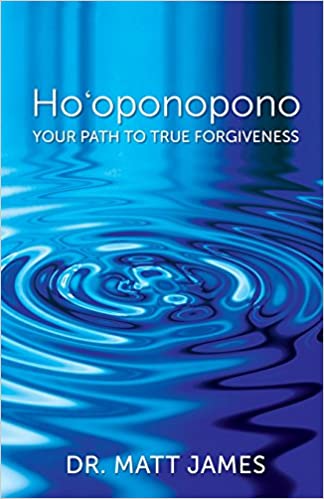
By the way, have you heard of a process called Ho’oponopono?
I have, yes.
Have you tried that?
It’s Hawaiian, right?
Yeah. It’s a Hawaiian prayer, essentially. ‘I’m sorry. Please forgive me. Thank you. I love you.’ You can formulate that into an entire conversation. You can use this prayer process with somebody who’s not even alive anymore. You can use it with somebody that you’re not talking with. It’s just very, very powerful and releasing. It’s incredible. It’s really incredible.
I’m in the process of reading a book called Ho’oponopono: Your Path to True Forgiveness. Wow, what a great book. I highly, highly recommend it. You can check that book out and use the process because if you can fully release everything related to your ex, it sounds like it’s not complete. But if you can use that process, and also, it’s a two-way street.
If a person doesn’t feel forgiven, and again, this works with somebody who’s passed in the non-physical back on the other side of the veil, they know that you haven’t forgiven them. If they can feel that forgiveness from you and also maybe they will reciprocate, it’s up to them, but if they reciprocate and Ho’oponopono you back, then that’s all cleared. That karmic debt between the two of you is cleared and you don’t have to play anything out in the future lifetime to try and work it out.
Yeah, I definitely agree. I read not that book but a book called Mastering Your Hidden Self that also talked about that method. I have forgiven, it’s just a challenging situation because we do have an offspring, and the behaviors, some of them are still not changed. Even though we’re not together anymore, I’m forced to deal with her because of that, so that makes it challenging.
I have forgiven because resentment weighs you down.
But I do believe that overall, I have forgiven just because like you said, resentment weighs you down. It messes up the rest of your life. Hence, it’s kind of like swallowing poison and hoping it hurts the other person. It’s just not helpful.
Again, the challenge is when you have to still keep dealing with a person and they’re still doing things that you just don’t agree with, but that’s part of life’s challenges. If everything was always perfect, then it wouldn’t be life. Sometimes, the narrative gives contrast.
You wouldn’t grow. If you don’t have the challenges, you don’t have the contrast, it’s just a passive game that you’re playing. You’re just sitting back and enjoying the ride instead of working those muscles and building your stamina and your character.
Definitely, and it helps you evolve, transform, and become someone who might not like the behavior, but at the same time will not become overly reactive to it.
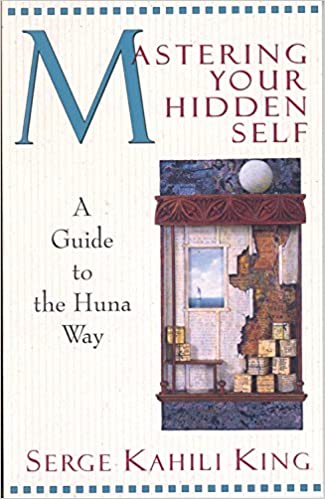
There’s this concept of everything happens for a reason. I do believe that to be true. I didn’t used to. Since my spiritual awakening, I’ve seen how the dots connect. I’m curious to hear how you see that in this particular situation. Your kid is maybe exhibiting behavior that’s not healthy, helpful, or it’s triggering, it’s bad behavior perhaps, and it came from your ex. In your highest and best good, how is that divinely orchestrated, guided to occur in your life so that you can grow? I’m curious how you see that.
It’s funny that you say that because that’s actually the biggest current challenge. I think part of the reason is the universe just wants to see how crazy it can drive me with me still being able to keep it together, just kidding.
By the way, this question that I asked you was not random. I do receive messages from above and it was at the exact moment that I was thinking I should ask you that question. It was 444. It is an angel number. Please proceed.
I’m glad you asked it. Here’s how I think it serves me. It gives me an opportunity to show grace, to not react the same way I reacted to my ex, and to show my daughter that there’s a different, better way to interact with the world and others. Not to make her wrong and not to withdraw my love, to hold space sometimes, and to just explain to her while her mind is still receptive. Because unfortunately, with most people, the older they get, the less receptive they are to alternative viewpoints.
To just show her that, (a) explain how certain behaviors make other people feel, but (b) to also get her to understand that it will hurt her, it will make her unhappy to act in certain ways and to have certain mindsets. One of the things I talked to her about recently is you always, always need to consider how what you say or do will affect others. Just basically trying to teach her empathy.
Most people really do want to do the right thing.
I think a lot of the reason why people behave certain ways is they don’t mean to be bad. I think most people mean well unless you’re one of the very small percentage of people who are born a psychopath, but that’s extremely rare. Other than that, most people really do want to do the right thing. They do want to treat others well. They have blind spots.
The expression, I don’t know who discovered water, but it wasn’t a fish. If you’re so close to it that you don’t see it because that’s your whole world. You’re immersed in that particular behavior because it’s your caregiver that’s presenting that to you on a daily basis. That makes it, as you say, a blind spot.
Definitely. But where I’m lucky is that my daughter is still open to learning and growing, thankfully. Other things too like she doesn’t like trying things that she doesn’t know how to do. What I’ve explained to her is, I don’t care if you come last place, I don’t care what your result is, as long as you try. As long as you try, I’ll be proud of you. I’ll only be disappointed if you don’t even try.
It’s these small daily discussions where your children give you an opportunity to give them the guidance that you might not have had or if you did have that guidance to pay it forward. I think it’s our duty as parents to do that so they’re equipped to have a healthy and productive life.
A way that I’d really like it framed, and you might try this with your daughter, I learned this from Ephraim Olschewski who is a friend and he was on this podcast. He was on my other show on Marketing Speak as well. He frames it like this. There’s this wall of context between you and the other person, it’s invisible.
If everything were always perfect, then it wouldn't be life. Sometimes, the narrative gives contrast. Share on XYou have to extend effort to climb over that wall to the other side, get to their world, see through their eyes, walk in their shoes, and then you can get them. You can convey something to them that will hopefully make them feel gotten by you because it doesn’t count if you get them. It only counts if they feel gotten by you. You can totally get them and it’s worth zero unless they have received it.
Yeah, that makes a lot of sense. It’s expanding and going beyond what Stephen Covey says, one of the seven habits, seek first to understand and to be understood. But yeah, that makes sense, not just to understand, but that the other person feels that you understand them. That’s definitely important because I think once people feel truly heard and understood, then they are a lot more receptive to guidance.
Thank you for opening up and sharing about this, about all of it. This is a current issue for you and I appreciate your vulnerability and your openness.
You’re welcome. Glad to do it. I think it’s challenging to talk about some of these things. One of the reasons why I’ve started doing YouTube videos and going on podcasts about trauma and trauma healing is I feel that—I know because I personally experienced this—there’s a lot of shame behind having these kinds of challenges and experiences. It’s kind of like sunlight is the best disinfectant. We can’t heal these intergenerational cycles of trauma if we’re never willing to talk about it.
If you blame your parents for the bad stuff in your life, blame them for the good stuff, too.
I have family members, for example, that are not happy that I bring up issues with my father. Let me just say that it’s like what Tony Robbins says. If you blame your parents for the bad stuff in your life, blame them for the good stuff too. There are some really amazing things that my father taught me like integrity, honesty, self-reliance. He never asked somebody to do something for him that he could do for himself. He always worked until he physically wasn’t able to. Those values that he taught me have served me very, very well in my life. I wouldn’t be where I was without that.
That doesn’t change the fact that there were some not so great things that happened. With the family that’s not happy about it, I think that they just need to understand that I’m not speaking about these things publicly to disrespect the memory of my father. I get to help other people overcome those challenges.
In fact, I’ve even had YouTube messages, from one lady in help now. That’s what I’m looking to do—to help prevent this—not too particular. She said, “I have this BPDF of kids, I don’t want to do this to my kids, I’m going to get demonize anybody, but to help people get awareness and do the work to break the cycle and not keep passing this from one generation to another.”
You’re revealing light in the world and that’s a beautiful thing. I would love to share a few more modalities with our listener and have you add any commentary to them if you’re familiar or have tried any of these other modalities. One is called EFT, Emotional Freedom Technique, also known as tapping.
I’ve tried that, yeah.
Okay. I’ve had Fred Gallo on this podcast talking in-depth about EFT and I found it transformational. It helped me to shed a lot of fear, trauma, and phobia around water and around heights in just a 145-minute session with Fred. That I highly, highly recommend. What was your experience with EFT?
Have an open mindset and be willing to try different things.
That’s amazing. I, unfortunately, did not have the same experience, but I would not dissuade anybody from trying it. Here’s one of the recommendations that I have for your audience. Have an open—whatever it takes—mindset and be willing to try different things. Some things will work amazing for you, some things not as well, and that’s fine. If something works great for you, double down and keep doing it.
If something doesn’t work as well for you, then not a problem. Just discard it, but it might work for some people. For example, EMDR worked amazing for some of my friends. It did nothing for me, but that’s okay. I’ve tried it and now, the thing about trial and error is you find out what works and what doesn’t work. I recommend that you end up finding at least three or four things that worked for you and stick with them. I’ve tried about 50 things. Definitely, we’re trying every method that’s out there.
EMDR, for our listeners who are not familiar with it, is Eye Movement Desensitization and Reprocessing.
Correct. Insurance typically covers it, so that’s a great thing too. I would be remiss though if I didn’t mention Kambo. It’s actually the hardest trauma-release method I’ve ever done. Again, a couple of caveats, don’t do Kambo without consulting with your doctor. It’s very physically challenging.
Basically, Kambo is a frog poison. They burn little holes in your skin and then rub it on there. You drink about a liter and a half or two liters of water before and you have a bucket in front of you. You get all hot, flushed, and your heart starts beating rapidly, and then you get dizzy and really nauseous, and then you just start projectile vomiting into the bucket in front of you.
The vomiting is basically purging. You can purge from the front and the back, which have unfortunately happened. I was in the toilet seat and it was just in stereo, front, back, front, back. That was very challenging, but Kambo is great.
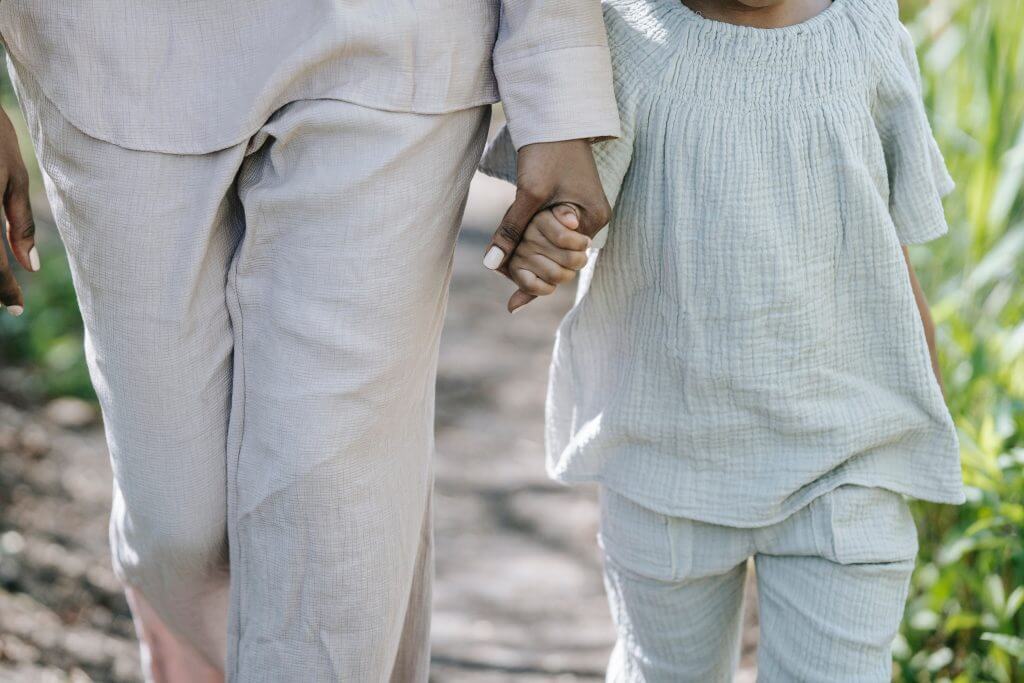
That sounds very fun. I’m going to sign up for that.
That’s the negative. The positive is first you’re out of it for a couple of days, and then day three or four, whatever your trauma level, it’s cut by a third or even as much as half. It’s the closest thing I’ve actually found—I told you, I don’t like magic pill stuff—to an actual magic pill. But the difference is unlike a magic pill, you have to pay the price to get the result. It doesn’t replace doing daily routines, habits, and other methods like Network Chiro because over time, life will re-trigger and traumatize you. But Kambo has been absolutely amazing for me. It’s been a game-changer.
A year and a half of Kambo was the equivalent of five previous years of trauma release work, for what it’s worth. But again, it’s very difficult and very challenging. I also would say never do more than one session a day. That could be dangerous. But yeah, Kambo was a game-changer for me.
Thank you so much. We don’t have time to talk about any other methods, but I do want to just briefly mention for our listener that there are a few other episodes that cover some of these trauma-releasing modalities. For example, hypnotherapy, there’s Rapid Transformational Therapy (RTT) developed by Marisa Peer. I’ve had Marisa on this podcast, an amazing, amazing episode and amazing technology.
Also breathwork. Kurtis Thomas was a guest on this podcast and we went through breathwork for healing. When you do all this hyperventilating-type breathing in a controlled environment where you’re being guided through it, which you can do on Zoom, I’ve done it with Kurtis on Zoom, it was powerful. It releases a lot of DMT, actually, when you’re doing this. You get high on your own supply. I recommend listening to that episode too.
Once people feel truly heard and understood, they are more receptive to guidance. Share on XAnother one is BrainTap, which is a technology, a device that you wear, a headset you wear on your head. It’s got light therapy, pulsing lights, music, binaural beats, and things like that that you can use to release, relax, and all that good stuff. Also, Mark Goulston was a guest talking about PTSD on an episode about a year or two ago. Those are great resources. Shalev, if we wanted our listeners to go to some additional resources of yours, where should we point them to? Obviously, your YouTube channel would be a great one, but where else?
Yeah, I would say the number one place right now. I am working on building a following of people looking to heal or to help people in their life heal. I have a bunch of free content and information. It’s @freedomfromtrauma, the YouTube channel. I am in the planning stages for a podcast, but that’s not ready to go yet.
Maybe it’ll be up by the time this episode airs.
Potentially. If it is, I’ll provide that to you.
Okay, awesome.
My Instagram is @lev_alg. Feel free to reach out to me and to check out my YouTube channel. I just want to help people. I spent years beating my head against the wall. If I can speed up time for others, that’s my main goal.
Awesome. Thank you so much. Thank you, listeners. Go out there and make it a great week. Heal and heal others. I’m your host, Stephan Spencer, signing off.

